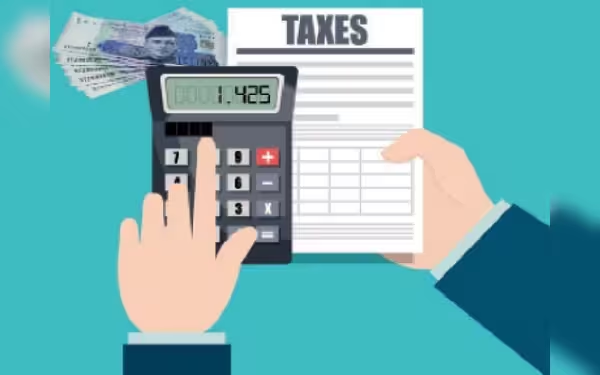Thursday, July 4, 2024 06:11 PM
Government Reviews Tax Proposals Amid Criticism
- Proposed income tax rate increases under review
- Concerns raised over 18% sales tax on infant milk
- Efforts to balance revenue generation and affordability
 Image Credits: tribune_pk
Image Credits: tribune_pkThe government is reevaluating proposed tax changes amidst criticism and concerns over affordability and revenue generation. Discussions include income tax revisions, sales tax on infant milk, and efforts to balance fiscal priorities.
The government is currently reviewing its proposed income tax rate increases for salaried individuals and exporters, as well as considering the phased implementation of an 18% sales tax on infant milk. These discussions come in response to widespread criticism from various sectors and businesses struggling with the significant Rs1.5 trillion additional revenue measures.
Finance Minister Muhammad Aurangzeb has expressed concerns about taxing the salaried class and has engaged in discussions with Prime Minister Shehbaz Sharif. However, any decisions on tax revisions will be contingent on available fiscal space and approval from the International Monetary Fund (IMF).
Despite the salaried class already contributing Rs360 billion this year, the government aims to generate an additional Rs75 billion from them in the upcoming fiscal year. Industrialists have seen a reduction in electricity costs by Rs240 billion, but there is pressure to maintain standard income tax rates for exporters rather than the current fixed 1% regime.
The proposal suggests a gradual increase in income tax for exporters rather than an immediate change. The government is also considering implementing the 18% sales tax on infant milk in stages to recover Rs20 billion in additional taxes by withdrawing the zero-rating facility on infant milk sales.
The potential 25% increase in the price of infant milk, including additional sales tax and new advance income tax, has raised concerns about affordability. Furthermore, the government plans to levy an 18% GST on packaged milk to generate an additional Rs75 billion in revenue.
Efforts to achieve a primary fiscal surplus include the option to reduce expenditures by cutting ministries and limiting spending. The proposed budget for the next fiscal year indicates a preference for increased revenue rather than cost-cutting measures.
The standing committee has supported a budget proposal allowing Pakistan International Airlines to offset losses over the next decade. However, objections have been raised regarding providing special exemptions to potential PIA buyers, as it may impact income tax payments.
Additionally, the committee has endorsed a ban on foreign travel for non-filers of income tax returns, with clarifications that the restriction applies to those served with notices. The introduction of a new category for 'delayed filers of income tax returns' has faced criticism, as it implies higher tax rates for this group.
The government's approach of differentiating tax rates for filers, late filers, and non-filers has sparked discussions on incentivizing compliance and asset acquisition. As these tax proposals undergo reevaluation, the government aims to strike a balance between revenue generation and addressing concerns over affordability and tax implications for different segments of society.













